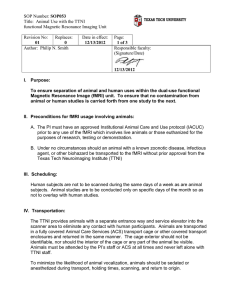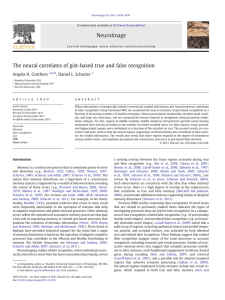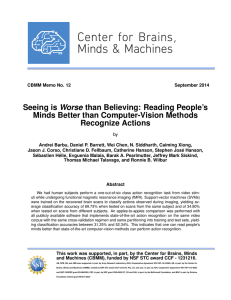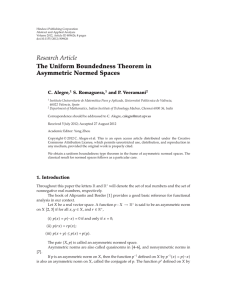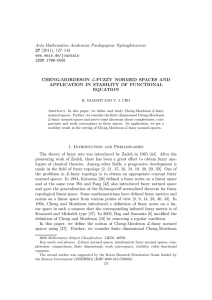EXP 4504 SPRING 2006 EXAM #1
advertisement
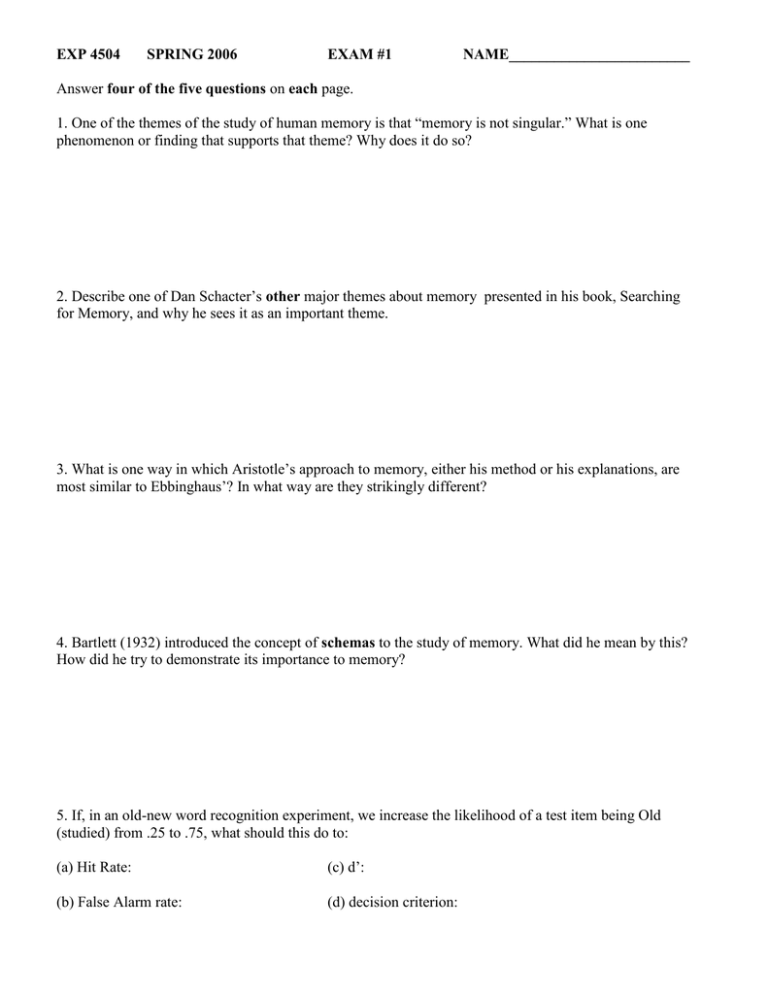
EXP 4504 SPRING 2006 EXAM #1 NAME________________________ Answer four of the five questions on each page. 1. One of the themes of the study of human memory is that “memory is not singular.” What is one phenomenon or finding that supports that theme? Why does it do so? 2. Describe one of Dan Schacter’s other major themes about memory presented in his book, Searching for Memory, and why he sees it as an important theme. 3. What is one way in which Aristotle’s approach to memory, either his method or his explanations, are most similar to Ebbinghaus’? In what way are they strikingly different? 4. Bartlett (1932) introduced the concept of schemas to the study of memory. What did he mean by this? How did he try to demonstrate its importance to memory? 5. If, in an old-new word recognition experiment, we increase the likelihood of a test item being Old (studied) from .25 to .75, what should this do to: (a) Hit Rate: (c) d’: (b) False Alarm rate: (d) decision criterion: 6. What does it mean for a clinical test of memory to be well normed? 7. Aside from it being well normed, what is one useful feature of the Wechsler Memory Scale III that has made it very popular? What is one limitation? 8. What is “long term potentiation?” Describe ONE of the apparent component processes at the neuronal level that seem involved in LTP. 9. Tang’s (1999) work with genetically altered mice found what specific mechanism for increasing longterm potentiation, and producing improved learning and memory? 10. In order to determine the level of activation reaching a given unit in a PDP network model of memory, what do we need to know? 11. PDP models have been described as “more neurologically realistic” than earlier computer simulations of cognition. What is one limit or weakness of the models in that sense? 12. Why do we say that brain imaging methods like fMRI are “indirect” measures of neuronal activity? 13. You are trying to determine if the effects of word concreteness impact perceptual encoding, or evaluation, of the word in a decision that takes about a half second to make. What cognitive neuroscientific technique would you choose to tackle this question, and why? 14. Briefly describe one particular finding from an fMRI or PET study of learning, memory etc. found in your readings (Schacter, Radvansky, or the range of studies from the Parry & Matthews online paper) that you thought was particularly intriguing. 15. I’ve been deprived of oxygen during surgery for too long, and the hippocampus and parahippocampal cortex on both sides of my brain have been destroyed. Give me a snapshot of my memory impairment – what’s gone, what’s preserved?
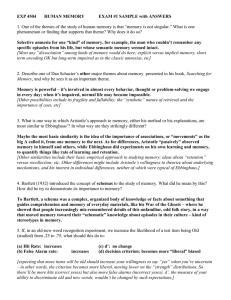
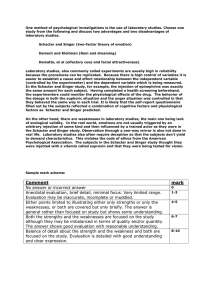
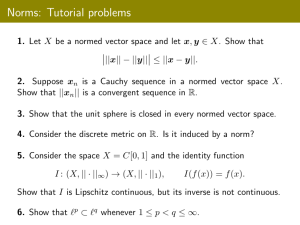
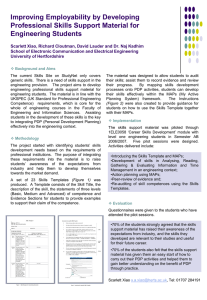
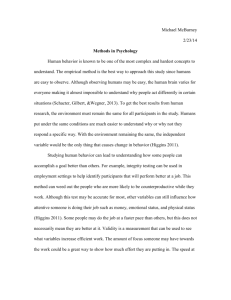
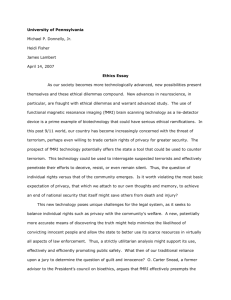
![Mathematics 321 2008–09 Exercises 7 [Due Thursday March 5th.]](http://s2.studylib.net/store/data/010730641_1-4e58786b6d769d94d02f29375d7a679b-300x300.png)
